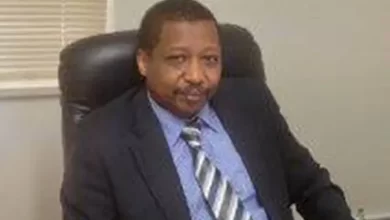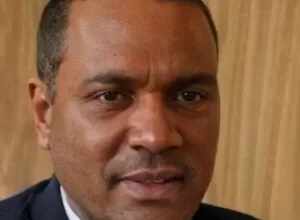Trump and the UAE: An Investment and Influence

Mohammed Hashem Mohammed Al-Hassan
On his Middle East tour, the US President Donald Trump’s visit to the United Arab Emirates (UAE) wasn’t just a passing encounter. Rather, it was the embodiment of a profound strategic partnership that transcends traditional frameworks and lays the foundations for a future driven by Artificial Intelligence (AI) and massive investmens. This particular visit revealed the unique status of the (UAE) and its President, Sheikh Mohammed bin Zayed Al Nahyan, in Trump’s calculations. This status seemed to be taking shape even prior to his arrival at the White House. Reports indicate Emirati support for Trump since his first election campaign, contrary to previous reports of Saudi Arabia and Qatar supporting Kamala Harris. This adds exceptional depth to the relationship.
The essence of the visit was the stunning announcement of the UAE’s intention to invest ($1.4 trillion) in the United States over the next decade. This astronomical figure isn’t merely a financial commitment; its a testament to the UAE’s ambitious vision to transition from an oil-dependent economy to an economy of knowledge and Artificial Intelligence.
The deals concluded included massive investments in sensitive and strategic sectors. Perhaps the most notable of which is the Technology Framework Agreement, which could grant Abu Dhabi expanded access to advanced Artificial Intelligence chips from the United States, with plans to import (500,000) Nvidia chips annually. This trend confirms that the (UAE) is not only seeking to attract investment, but to become a global hub for future technology as well, transforming the desert into a new Silicon Valley.
What distinguished this visit was the personal chemistry and clear appreciation shown by Trump for Sheikh Mohammed bin Zayed. Trump’s remarks went beyond mere diplomatic pleasantries, describing Sheikh Mohammed as a “good friend,” a “great warrior,” and a “very strong, brilliant, visionary man.” These descriptions, along with reference to the special relationship between the two countries, highlight the depth of mutual trust and confirm a personal understanding that transcends protocol.
Sheikh Mohammed bin Zayed’s choice to award Trump, the Sheikh Zayed Medal, the UAE’s most prestigious honor, wasn’t merely a tribute; it was a recognition of the role Trump played in strengthening this strategic partnership.
Although the official statement of the visit didn’t directly highlight Sudan, influential players in American and Middle Eastern politics are well aware of the UAE’s influence in this rather thorny issue. Just as Saudi Arabia is considered a pivotal player in the Syrian conflict and Qatar is an indispensable mediator in the Gaza conflict, it can be argued that the Sudan issue falls within the UAE’s sphere of interest and influence.
Frequent reports of the UAE’s support for one of the parties to the conflict in Sudan, along with its economic and strategic interests in the Horn of Africa, make it a crucial player in any future peace equation there. This influence qualifies the (UAE), de facto, to be the key to resolving the crisis, even if it doesn’t explicitly declare it.
Trump’s visit to the (UAE) was a confirmation that the relationship between the two countries goes beyond conventional arms deals or usual security alliances. It is a future-oriented partnership, with the (UAE) investing in an unprecedented manner in the foundations of the new American economy (Artificial Intelligence and technology), supported by political trust and strong personal relationships with influential leaders. This partnership isn’t merely a matter of economic interest, but rather a strategic vision for a country seeking to consolidate its position as a regional and global power in the post-oil era, leveraging its economic and diplomatic influence to advance its interests and achieve its ambitious vision.





